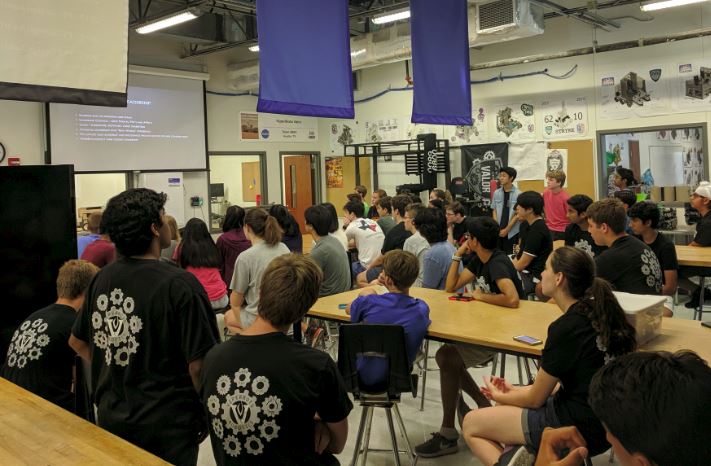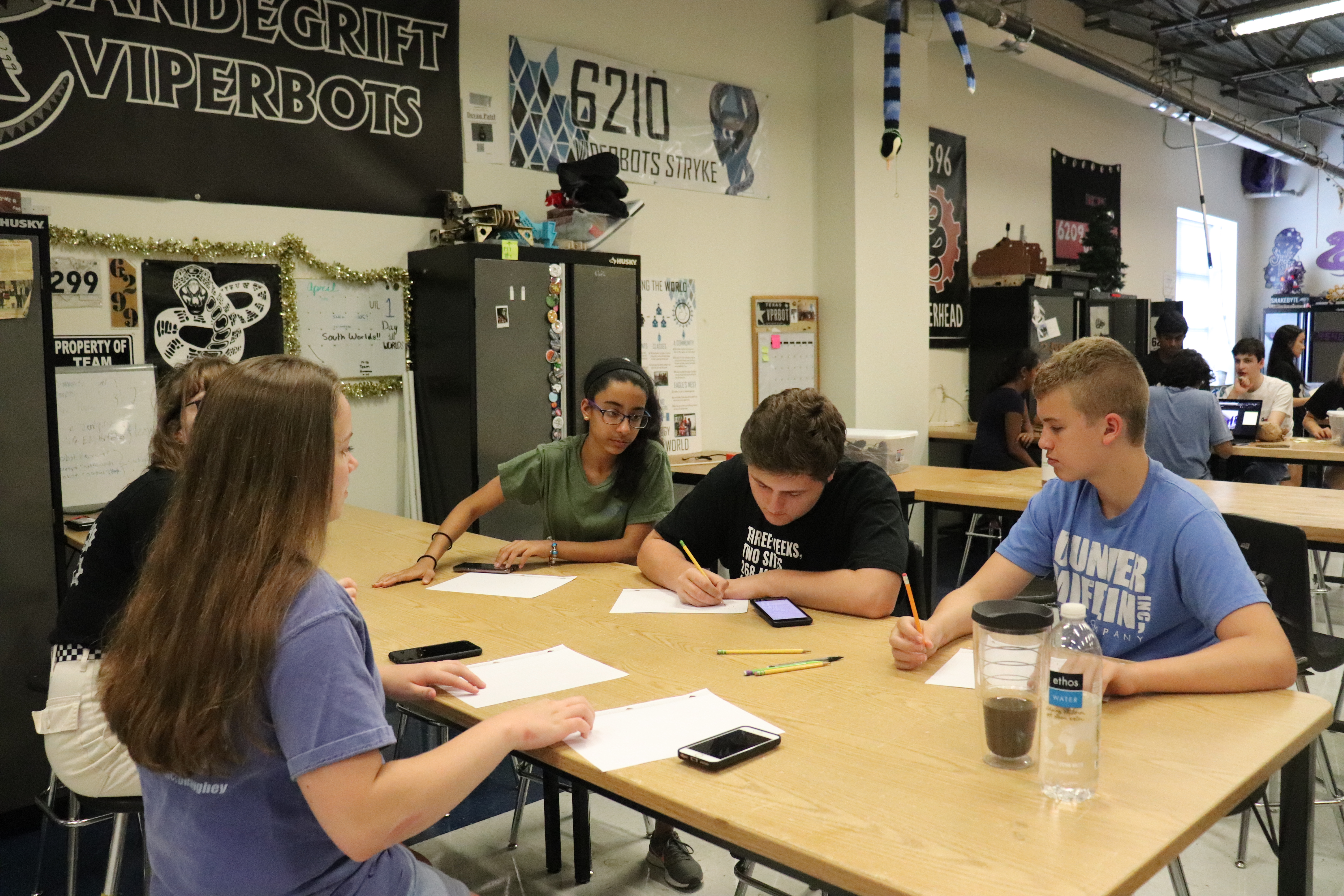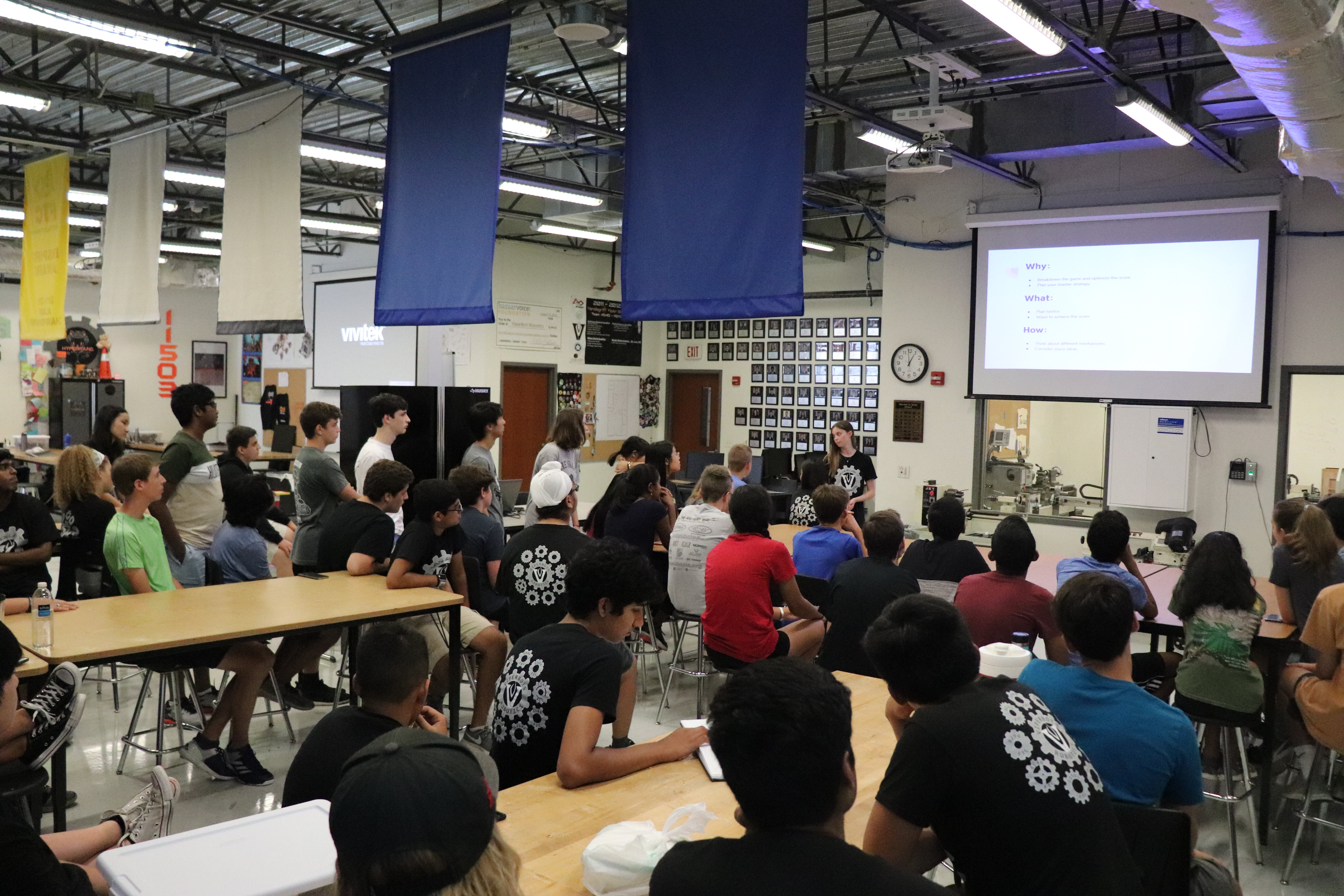Rookie Training/ Summer Activities
9/24/2019

Each summer our organization holds a rookie camp for incoming members as well as local middle school teams. A “mini-game” is design for each season and participants get to compete at the end of the week.
1. Setting a PrecedentIn order to start your team off right you have to set a culture and expectations. If you have your team form early enough, the summer is a great time to do this. Plan some fun activities so everyone can get to know each other and get excited for the season, such as an escape room, laser tag, go-karting, or paintball. Enjoying the time together is your number one priority, but you also want to simultaneously be building crucial teamwork skills.
Additionally, the first thing we do at our rookie camp is go over expectations for the season, and the culture of our entire organization. Mentors give this presentation specifically to ensure this is viewed as the serious presentation of the week. Here rules for attendance, grades, behavior, and responsibilities are reviewed. Now that the serious stuff is out of the way, we can get to the fun part.
2. What Do You Learn At Rookie Camp?First things first, we present what FIRST, FTC, and the general competition is. You have to understand what you’re doing before you learn how to do it. Then, we continue defining what they are working towards by presenting that summer’s game! Right before the game reveal, we give a crash course in strategizing your plans for the season in a what-why-how fashion.The camp gets to watch a short game reveal and then break out into design sessions with their four to five person groups, guided by two to three rookies.


Everyone that attends rotates through intro sessions for fabrication, software, marketing, and engineering notebook during Tuesday morning. Our goal is for everyone to have a basic understanding of each of the essentials so they can help out and learn wherever needed. The following day, each rookie gets to pick one specialized workshop to go to, out of hardware, software, marketing, and CAD. This is generally what that person plans to do during the season, but if they already have extensive experience in that area, they may choose another area to learn more about.
Thursday morning starts with a judging crash course, for both formal and pit judging. Since we don’t actually get to this until much later into the season, the focus is centered on the importance of judging in FTC, and what judges want to hear, less nit-picking how to say it. Each team then gets some time to devise and practice a 5 min presentation on what they learned and accomplished throughout the week
So far we’ve talked about all the presentations that occured in the morning, but what about the rest of the day? After an hour, or two, or three, of absorbing information, we wanted to make sure the rookies understood what they were being taught. So, after lunch every day was free build time, where each team got to apply their new skills directly onto a robot they independently coded and constructed from the wheels up. Plenty of veterans were about to answer any questions or help get over roadblocks, but were strictly hands off the robots. On the other end, to start off each day, we played different icebreaker game. Meanwhile getting to know the people they would be working with for the rest of the season, rookies and veterans alike got to know those on their sister teams as well.
3. The Final DayThe rookies’ week culminates here. Everyone rushes to put the finishing touches on their robot, and pull together their EN. Judges survey their presentation, taking notes for the most fitting award, and robots scramble around the field, fighting for a spot in eliminations. Our mock competitions give our incoming members a taste of what competition is like, in a slightly lower stress environment. Elim brackets are completed and the day is capped off with an awards ceremony to honor the hard work put in all week.
